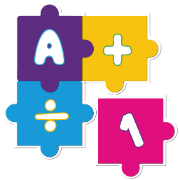The Surprising Benefits of Educational Games for Kids: What Every Parent Should Know
Educational games can be a fun and effective way to improve your child's learning. Read our guide to choosing the best educational games and balancing screen time. Balancing screen time and outdoor playtime is important for your child's health and development. Learn how to choose the best educational games and encourage your child's creativity.



Educational games are a type of interactive media that can teach kids a variety of skills, from problem-solving to language learning. Many parents are concerned about the amount of screen time their children receive, but educational games can provide a fun and engaging way for children to learn while still having fun. In this blog post, we'll explore the surprising benefits of educational games and how parents can choose the best games for their child's age and developmental stage.
The Benefits of Educational Games for Kids
Improved cognitive development - Educational games can improve children's cognitive development by teaching problem-solving skills, critical thinking, and decision-making. By engaging in interactive play, kids can develop their reasoning and spatial skills.
Enhance problem-solving skills - Educational games can teach kids how to problem-solve and think with wisdom. Games that involve puzzles or challenges can help kids learn how to break down complex problems into smaller, more manageable parts.
Develop social skills - Educational games can help kids develop social skills by promoting collaboration and teamwork. Multiplayer games can teach children how to work together and communicate effectively.
Increased Motivation to Learn - One of the significant benefits of educational games is that they make learning fun. Children are naturally curious and eager to learn when they find something exciting and engaging. Educational games provide an interactive and enjoyable way to learn, which can increase children's motivation to learn.
Improved Hand-Eye Coordination - Many educational games involve hand-eye coordination, which can help children develop better fine motor skills. When children play these games, they need to use their hands and fingers to interact with the game, which can improve their coordination and dexterity.
Improved Memory - Many educational games require children to remember information and use it to complete tasks. This can help children develop better memory skills, which are crucial for academic success. As children play educational games, they become better at retaining and recalling information, which can help them excel in other areas of their lives.
Increased Attention Span - Educational games require children to focus and pay attention to the game's content. This can help children develop better concentration and an increased attention span. As children play educational games, they become more engaged and focused on the task at hand, which can translate into better focus and attention in other areas of their lives.
Development of Technical Skills - In today's digital world, technical skills are essential for success. Educational games can help children develop technical skills, such as using a computer or navigating a website. By playing educational games, children can become familiar with technology and learn how to use it effectively.
Balancing Screen Time and Outdoor Playtime for Your Child
Importance of outdoor playtime - It's important for kids to have time to play outdoors and engage in physical activity. Encourage your child to spend time playing outside, whether it's by going to the park or playing in the backyard.
Setting screen time limits - Set clear guidelines for how much time your child can spend playing educational games.
Alternating between educational games and other activities - Encourage your child to engage in a variety of activities, including playing educational games, reading, doing puzzles, and playing outdoors. By balancing screen time with other activities, you can help your child develop a well-rounded set of skills and interests.
In conclusion, educational games can provide numerous benefits to children's cognitive development, problem-solving skills, social skills, creativity, and imagination. By choosing age-appropriate, educational, engaging, and fun games, parents can help their children learn while still having fun. Balancing screen time with outdoor playtime is also important for overall health and development. So, let your child explore the world of educational games and have fun while learning!



.png)
